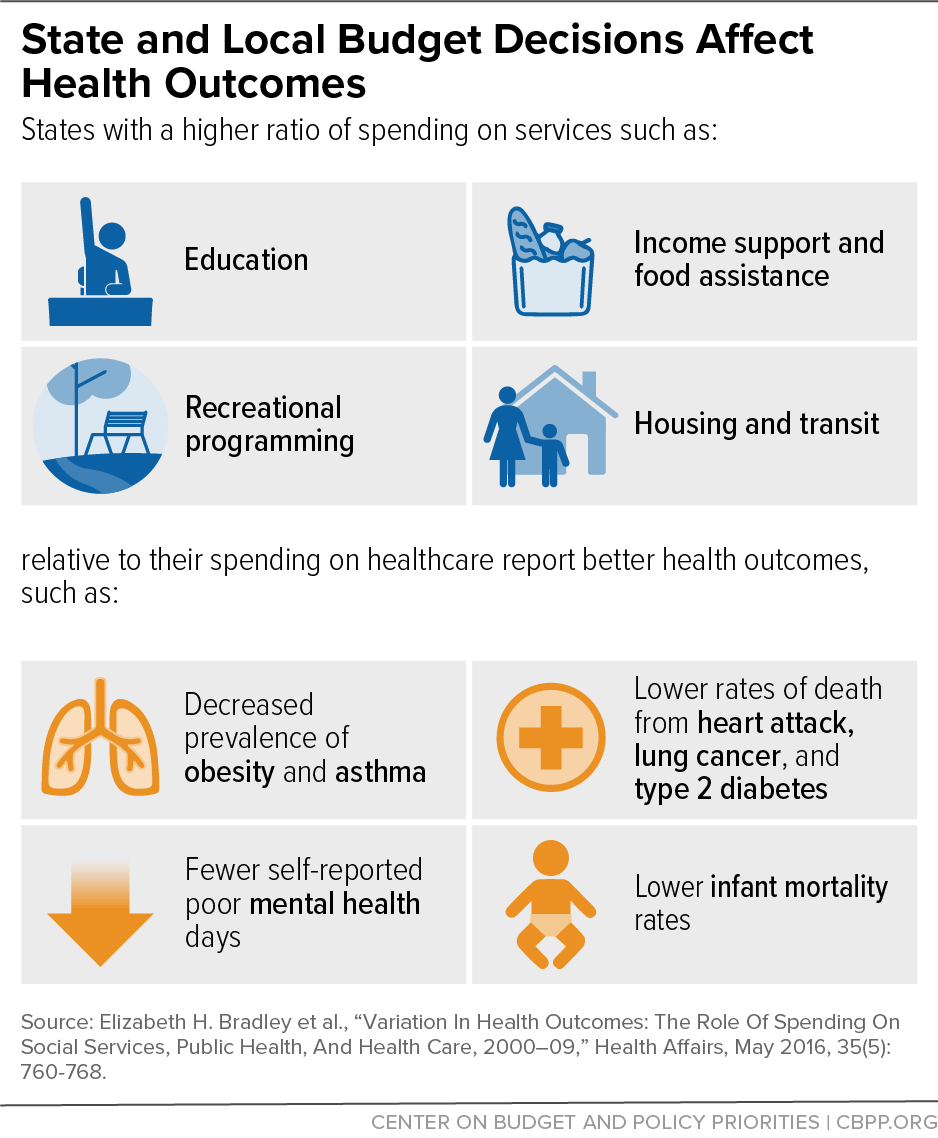BEYOND THE NUMBERS
Many States Taking Steps That Will Improve Residents’ Health, Advance Health Equity
Many states this year have adopted or are considering budget and policy changes that don’t involve health care programs directly but can measurably improve residents’ health, such as improving their tax codes, raising the minimum wage, and investing in education. Things like access to food, affordable housing, high-quality schools, and economic opportunity significantly affect people’s and communities’ health, our report shows (see graphic).
These budget and policy changes will lead to more equitable health outcomes for people of different races and income levels because they change the structural conditions that create health inequity — such as inequality in income, wealth, and access to high-quality education and health care.
Examples include:
- State earned income tax credits (EITCs) help low-income working households make ends meet and are a powerful tool for reducing and preventing poverty. Research links this added income with improved infant, child, and maternal health. Many states are considering EITC proposals this year. New Mexico passed a tax package that expands its credit from 10 to 17 percent of the federal credit. Arkansas and Georgia are considering creating EITCs; Delaware is considering making its credit refundable (meaning that households would receive the full value of the credit even if it exceeds their income tax liability); and California, Oregon, and Washington are considering expanding eligibility for their EITCs.
- Minimum wage increases can improve the health of low-wage workers by making health care more affordable, reducing the likelihood of poverty, and reducing tobacco use (possibly by lowering workers’ stress). Illinois, Maryland, and New Jersey recently enacted bills to gradually raise the minimum wage to $15, while New Mexico enacted a more modest increase. Connecticut, Vermont, Pennsylvania, and other states are considering similar proposals.
- Early education has immediate and long-term benefits for children, including improvements in social and emotional development, academic achievement, and lifetime earnings. It’s also linked to reduced risk for certain chronic health conditions and can help counteract the effects of poverty and other adverse childhood experiences. New Mexico recently boosted early childhood education by $36 million a year in a bill raising teacher pay and overall education funding; the state also created an agency to oversee early childhood, including education and other services like home visits. Governors in Montana and Oregon have also proposed increasing pre-K investments.
- Paid sick leave and paid family leave improve families’ economic security and are linked to improved health outcomes for workers and their children. New Jersey recently expanded its paid family leave program, and at least nine other states are considering expanding access to various forms of paid leave: California, Colorado, Connecticut, Maine, Maryland, Minnesota, New Hampshire, Oregon, and Vermont.

